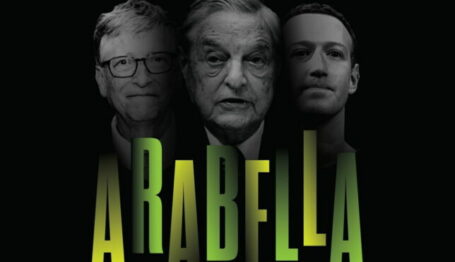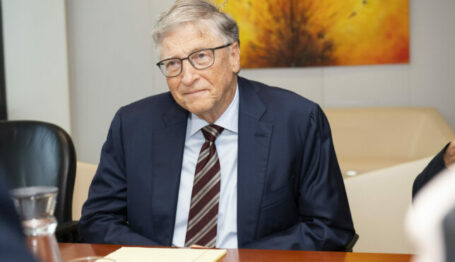Book Profile
Loving Mankind Poorly


This article originally appeared in RealClearBooks on February 1, 2019.
A review of Daniel J. Mahoney’s The Idol of Our Age: How the Religion of Humanity Subverts Christianity.
In his 1983 Templeton Prize acceptance remarks, Russian novelist and historian Alexander Solzhenitsyn said, “More than half a century ago, while I was still a child, I recall hearing a number of older people offer the following explanation for the great disasters that had befallen Russia: ‘Men have forgotten God; that’s why all this has happened.’
“[I]f I were asked today to formulate as concisely as possible the main cause of the ruinous Revolution that swallowed up some 60 million of our people, I could not put it more accurately than to repeat: ‘Men have forgotten God; that’s why all this has happened,’” Solzhenitsyn continued. “And if I were called upon to identify briefly the principal trait of the entire 20th century,” including in the rest of the world, “here too, I would be unable to find anything more precise and pithy than to repeat once again: ‘Men have forgotten God.’”
Now, more than 35 years after Solzhenitsyn’s momentous Templeton remarks, Assumption College professor Daniel J. Mahoney’s The Idol of Our Age: How the Religion of Humanity Subverts Christianity similarly forthrightly labels and harshly critiques the self-regarding humanitarianism of our time, the “religion of humanity.” In this religion, according to Mahoney, modern man is the measure of all things—as opposed to transcendence, which one might normally expect in a religion. In our century, across the globe, more men have forgotten God.
Modern man is so much the measure in this religion, Mahoney respectfully argues, that it has now sadly come to corrupt Christianity itself. Essentially, even Christians are forgetting God. Confusion caused by Pope Francis’s pronouncements, moreover—basically borne of left-wing humanitarianism and egalitarianism as they are—do not help improve their memory.
Russian Tough-Mindedness
Mahoney cites Solzhenitsyn’s ’83 Templeton lecture in The Idol of Our Age, and parts of Mahoney’s larger argument in the book also share other points made by Solzhenitsyn, who died in 2008. In particular, Mahoney urges that Solzhenitsyn’s final novel, the “treasure that is The Red Wheel (Solzhenitsyn always considered it to be his most significant work) … become better known as the years go by.” A series of works, The Red Wheel evidences Solzhenitsyn’s “tough-minded Christianity,” which is hard on “the pacifistic distortion” of it by revolutionaries.
Elsewhere in The Idol of Our Age, Mahoney describes, relies upon, and attempts to revive the congruent thinking of another, earlier, lesser-known Russian intellectual, Vladimir Soloviev. The enigmatic and learned novelist, philosopher, theologian, poet, and literary critic, who favored healing the schism between the Roman Catholic and Orthodox Churches, died in 1900 at age 47.
In particular, Mahoney provides a close reading of and commentary on Soloviev’s A Short Tale of the Antichrist—“a masterpiece of world literature” that is “perhaps the most powerful and profound exploration of the humanitarian subversion of Christianity ever written,” according to Mahoney. A Short Tale is a biography of Superman, the anti-Christ, who is beautiful, spiritually powerful, and claims to bring paradise to Earth.
Soloviev’s aim with the book is to expose “the world-unifying power of the Antichrist,” as he describes in its preface, quoted by Mahoney. He “will speak loud and with high-sounding words,” according to Soloviev, and he will “cast a glittering veil of good and truth over the mystery of utter lawlessness.” He will “promote a moralistic falsification or corruption of the Gospel,” in Mahoney’s words. Basically, he will help lead us to the forgetting of God.
Tough-minded and powerful indeed.
Philanthropy and Human Dignity
Interestingly, along with many other relevant characteristics, “Soloviev presents the Antichrist as a humanitarian benefactor and ‘philanthropist,’” in Mahoney’s summary. The demonic antihero’s plan, seductively outlined in a tract entitled The Open Path to Peace and Prosperity, is “a philanthropic project.”
“We are not accustomed, when it comes to philanthropy, to this kind of talk—or, really, to any kind of negativity at all,” notes Jeremy Beer, writing in 2014 about Orestes Brownson. (Mahoney’s book also features Brownson, who once claimed that Satan’s “favorite guise in modern times is that of philanthropy.”)
Soloviev’s Antichrist figure in A Short Tale is prideful and narcissistic by nature, and thus easily yields to temptations. Philanthropists, being humans, are susceptible to feeling the same pride, to the same self-obsession. This vanity seems to be in the very nature of the philanthropic enterprise.
A Short Tale’s Superman is also materialistic, seeing much value in discrete things and pleasures. Philanthropists can too easily see value in the material, as well—in the assets at their disposal and the distribution of beneficence at their behest. Soloviev’s villain is presentist, too, preferring the moment over eternity. Similarly, philanthropists are often presentists, seeking and loudly touting immediate or short-term ends rather than the transcendent. “Time flies, eternity waits,” as the aphorism goes.
Whether stated as starkly as the apocalyptic Soloviev does or not, there are strong temptations in philanthropy, too—and whether one is a religiously informed philanthropist or not. Some Solovievan and Solzhenitsynian tough-mindedness can help overcome those temptations, to good effect.
As Solzhenitsyn lamented in 1983, absent such toughness, there can be other, highly tragic effects. “Men have forgotten God; that’s why all this has happened.” As Mahoney argues in The Idol of Our Age, humanitarianism’s prideful placing of the material and the present over the transcendent is happening again, now.
“Humanitarianism subverts human dignity,” Mahoney observes, “when it identifies our highest aspirations with a peace and prosperity, a godless philanthropy, shorn of any concern for that which transcends humanity and which ultimately grounds our dignity as human beings.”
These are temptations, as Mahoney warns. Tough-mindedly, as Solzhenitsyn urges, we should all remember—to overcome them, and how and why. With humility, a broad worldview, and a long-term timeline, as underscored by Soloviev, philanthropy and philanthropists in particular should sure remember.



